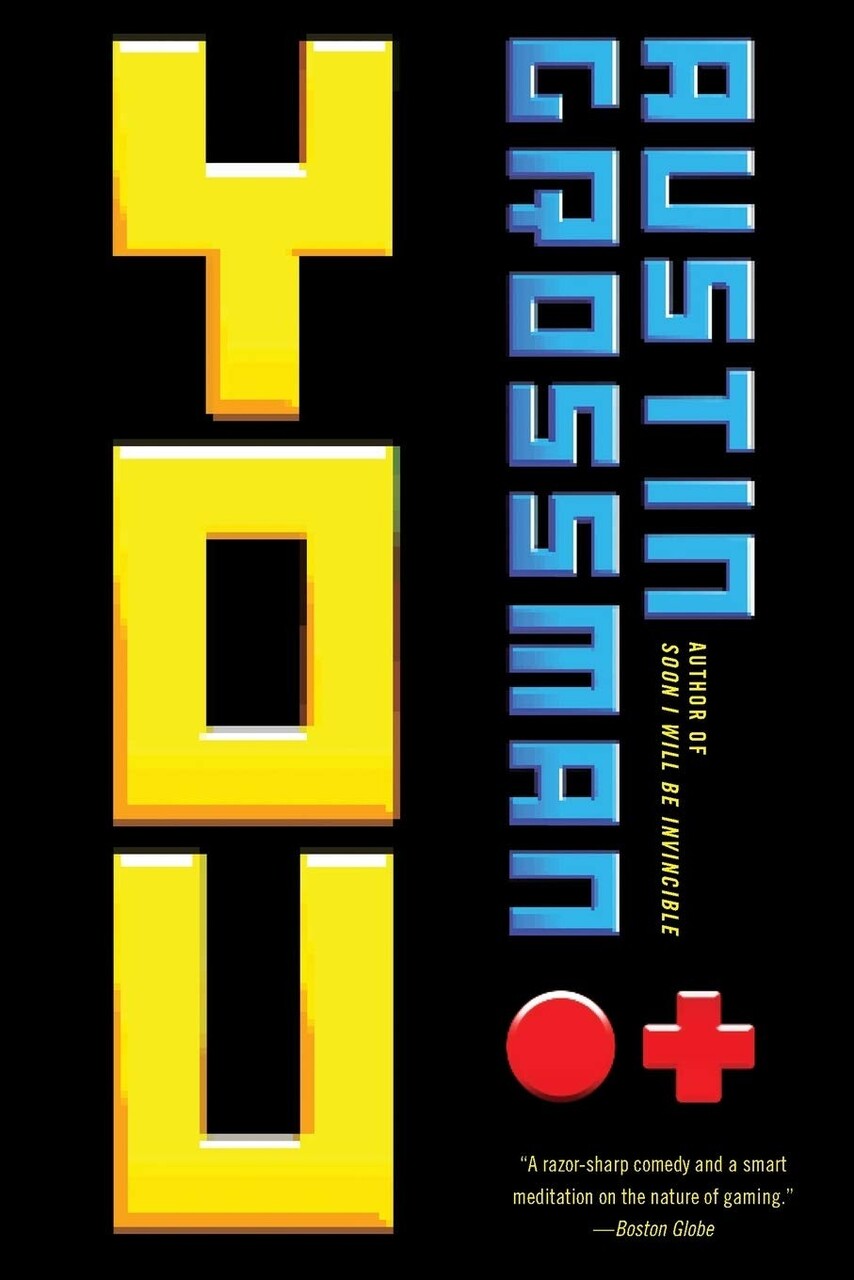Review: You

When Russell joins Black Arts games, brainchild of two visionary designers who were once his closest friends, he reunites with an eccentric crew of nerds hacking the frontiers of both technology and entertainment. In part, he's finally given up chasing the conventional path that has always seemed just out of reach. But mostly, he needs to know what happened to Simon, his strangest and most gifted friend, who died under mysterious circumstances soon after Black Arts' breakout hit.
As the company's revolutionary next-gen game is threatened by a software glitch, Russell finds himself in a race to save his job, Black Arts' legacy, and the people he has grown to care about. The deeper Russell digs, the more dangerous the glitch appears -- and soon, Russell comes to realize there's much more is at stake than just one software company's bottom line.
“You”’s biggest problem is simply that it came after Ready Player One, and so everyone presumes that, just because they both deal with video games, they must be similar.
They’re not. At all.
Ready Player One is exactly what I suspect most people would expect of a video game novel: fast paced, fun, full of action and suspense. That it’ll get made into a movie I have no doubt.
“You” is something else entirely. “You” is, at it’s heart, a character study, a confessional from a man who as a kid felt lost, was found, then in adulthood lost themselves again before rediscovering that kid they were and the man they wanted to be. It’s a book about feeling outside and set apart, and then discovering others in the wilderness and taking shelter together.
In this story videogames are, I think, better thought of as a catalyst. They bring these outsiders together and provide them with shared experience and a medium in which to find and express themselves, to, as Grossman writes, “[try] over and over to tell yourself your own story, and get it right”.
So it’s no great surprise that some might feel disappointed by this book… if you’re looking for action and adventure, you won’t find it here. Instead here you’re find genuine nostalgia (not the kitschy, clever, pop-culture infused kind), a love letter to those of us who grew up on videogames and always felt like a bit of a square peg being pounded into a round hole.
-
{% for webmention in webmentions %}
-
{{ webmention.content }}
{% endfor %}
No bookmarks were found.
{% endif %}Likes
-
{% for webmention in webmentions %}
-
{% if webmention.author %} {% endif %}
{% endfor %}
-
{% for webmention in webmentions %}
-
{{ webmention.content }}
{% endfor %}
No links were found.
{% endif %}Replies
-
{% for webmention in webmentions %}
-
{% if webmention.author %} {% endif %} {% if webmention.content %} {{ webmention.content }} {% else %} {{ webmention.title }} {% endif %}
{% endfor %}
-
{% for webmention in webmentions %}
- {% endfor %}
-
{% for webmention in webmentions %}
- {% endfor %}
No reposts were found.
{% endif %}-
{% for webmention in webmentions %}
- {% endfor %}
No RSVPs were found.
{% endif %}-
{% for webmention in webmentions %}
-
{% if webmention.author %} {% endif %} {% if webmention.content %} {{ webmention.content }} {% else %} {{ webmention.title }} {% endif %}
{% endfor %}
No webmentions were found.
{% endif %}